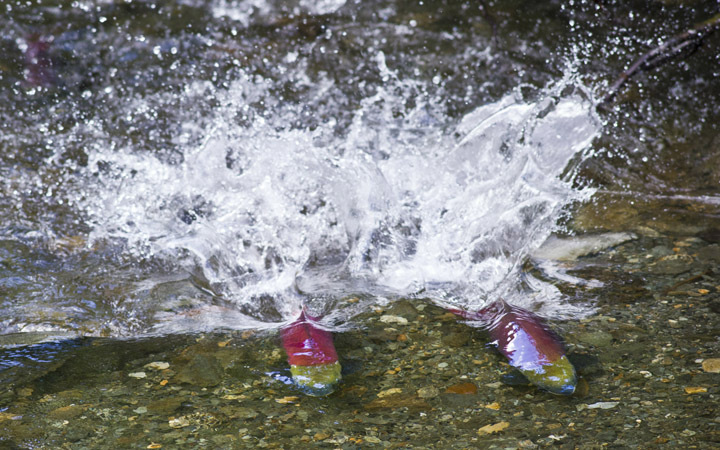Pebble Mine’s Canadian, would-be developers are ecstatically peddling a story that their mine’s approval is certain. A new Trump Administration, “desires to see Pebble permitted,” Northern Dynasty’s chief executive said Monday. Because of this, investors are piling on, sending the Northern Dynasty stock soaring in recent weeks.
All of these outsiders have forgotten one thing: the Pebble Mine is proposed in Bristol Bay, Alaska, not the South Lawn of the White House.
Bristol Bay supports the world’s largest run of sockeye salmon that sustains local communities, businesses and the regional economy. Alaskans hate the proposal despite “alternative facts” being pushed by Northern Dynasty in recent days claiming local support.
Let the record show that 80 percent of Bristol Bay residents have said clearly that they don’t want the mine.
Statewide, 65 percent of residents have said “no mine.”
What’s behind that overwhelming opposition is our shared salmon culture and economy. Salmon are that renewable resource that employs 14,000 of us in Bristol Bay alone and pumps at least $1.5 billion into the economy every year. This wild abundance also puts food on the table and is the foundation of seasonal subsistence traditions that date back thousands of years.
You don’t have to run a smokehouse in Dillingham or have a commercial fishing operation to know that our real mother lode is the red gold that returns home every year to Lake Illiamna in the form of millions of sockeye. It is what makes Alaska home for all of us. Always has and always will.
If we protect it from the likes of Northern Dynasty, that is.
And that’s where we have some work to do — matching our state’s fish habitat protection policies with our unwavering public support for salmon.
Instead of relying on distant bureaucrats and shifting political alliances in Washington, D.C. to take care of our most precious resource, it’s time for Alaska to get our own policy house in order.
Alaska’s Board of Fisheries is now helping lead the way.
Following extensive public hearings this fall, the Board of Fish last week sent legislative leaders recommendations for updating Alaska’s fish habitat protection and permitting law. The board emphasized the need to create clearly enforceable habitat protection standards and make the process open to public input.
Currently, the standard for permitting development in salmon habitat is broad and vague, allowing the commissioner of the Department of Fish and Game to permit development that may impact fish habitat, unless the plans are found “…insufficient for the proper protection of fish and game.” That’s the extent of it.
What’s more, permits typically take about four days to be issued, without any public notice or opportunity for input.
Clearly stated standards that guide development around fish habitat will provide more certainty in the permitting process and protect our salmon runs. Better yet, adding public involvement means that communities and businesses that rely on healthy salmon populations can weigh in and have their voices heard.
It’s time for all Alaskans who care about salmon to voice support for reforms envisioned by the Board of Fisheries.
This is not just about confronting potentially devastating developments like Pebble that may come down the line. It’s about translating our core values into updating policies to reflect them. And it’s about protecting existing economies and growing industries that are consistent with our values.
The winds in D.C. may shift and the stock market may rise and fall. But Alaskan values do not waver. Our connection to salmon is core. Let the laws of the land reflect that — and soon.
• Sharon and Everett Thompson of Naknek, Alaska, own a commercial fishing business where their three children are sixth-generation commercial fishermen.

